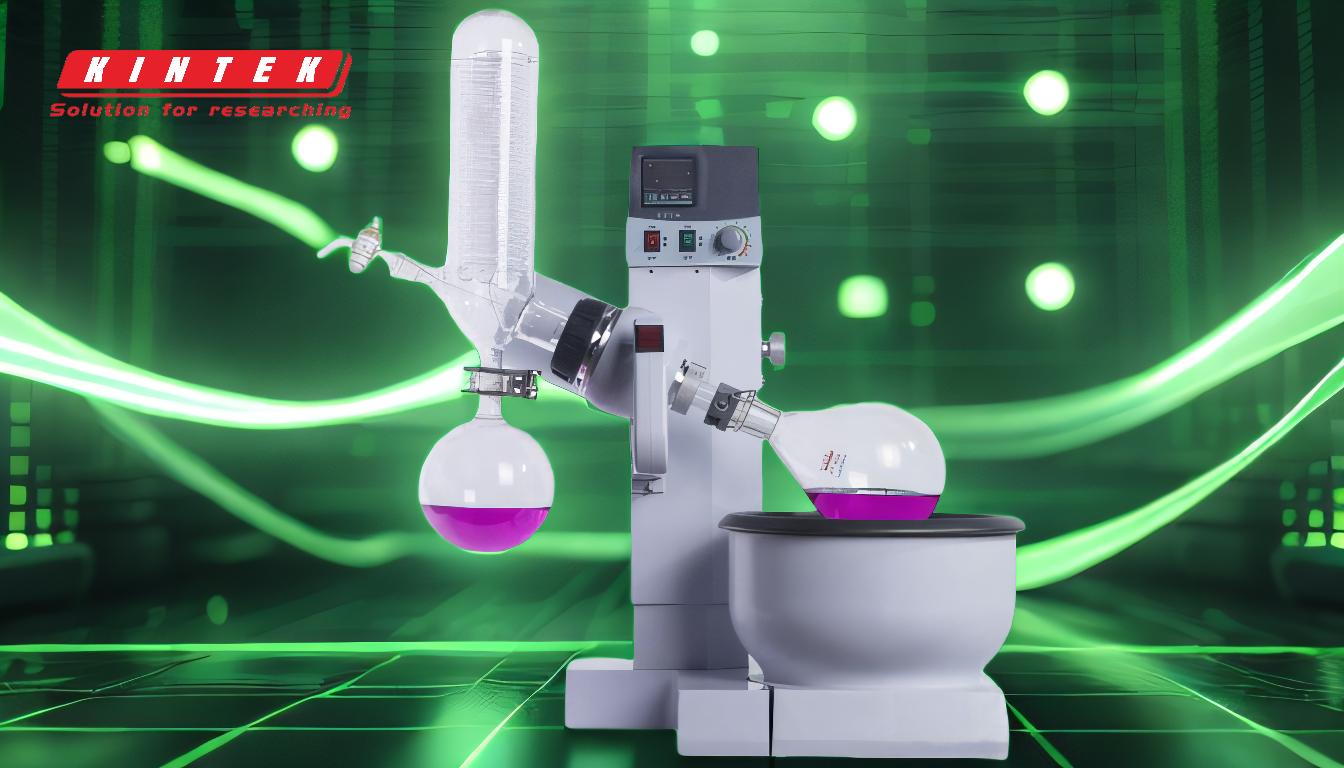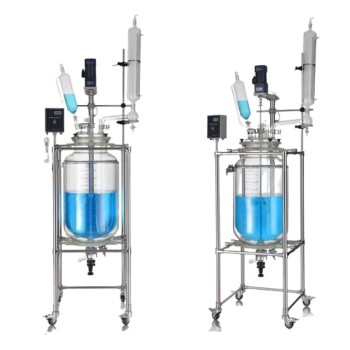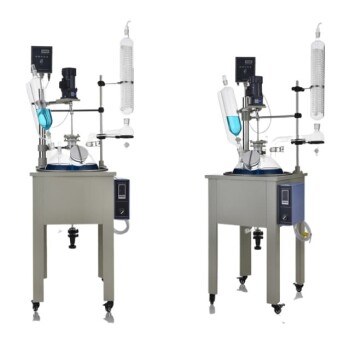The temperature at which a rotary evaporator evaporates methanol depends on the operating pressure and the desired vapor temperature. Methanol has a boiling point of 64.7°C at atmospheric pressure (760 mmHg), but under vacuum conditions, its boiling point drops significantly. For example, at a pressure of 95 mbar, methanol boils at approximately 25°C, and at 123 mbar, it boils at around 30°C. The rotary evaporator's vacuum system allows for precise control of pressure, enabling evaporation at lower temperatures to protect heat-sensitive materials. The bath temperature is typically set about 20°C higher than the desired vapor temperature to ensure efficient evaporation while minimizing the risk of bumping. For methanol, this means a bath temperature of around 45–50°C for a vapor temperature of 25–30°C. The condenser is usually set to around 0°C to ensure effective condensation of the methanol vapor.
Key Points Explained:

-
Boiling Point of Methanol Under Vacuum:
- At atmospheric pressure (760 mmHg), methanol boils at 64.7°C.
- Under vacuum conditions, the boiling point decreases significantly. For example:
- At 95 mbar, methanol boils at approximately 25°C.
- At 123 mbar, methanol boils at around 30°C.
- This reduction in boiling point is crucial for protecting heat-sensitive materials and speeding up the evaporation process.
-
Role of Vacuum in Rotary Evaporators:
- Rotary evaporators operate under high vacuum conditions (typically around 1 torr or 1.33 mbar).
- The vacuum pump reduces the pressure inside the system, lowering the boiling points of solvents like methanol.
- This allows evaporation to occur at much lower temperatures than at atmospheric pressure.
-
Temperature Settings for Methanol Evaporation:
- Vapor Temperature: The desired vapor temperature for methanol evaporation is typically 25–30°C, depending on the pressure.
- Bath Temperature: The water bath temperature is usually set about 20°C higher than the vapor temperature to ensure efficient heat transfer. For methanol, this means a bath temperature of around 45–50°C.
- Condenser Temperature: The condenser is typically set to around 0°C to ensure effective condensation of methanol vapor.
-
20/40/60 Rule:
- This rule suggests setting the bath temperature about 20°C higher than the desired vapor temperature and the condenser temperature about 20°C lower.
- For methanol, this translates to:
- Vapor temperature: 25–30°C.
- Bath temperature: 45–50°C.
- Condenser temperature: 0°C.
-
Importance of Rotation and Thin Film Formation:
- The rotary flask rotates at a constant speed, creating a thin film of the process medium on the inner wall.
- This thin film ensures uniform heating and increases the surface area for evaporation, speeding up the process.
- Rotation also reduces the risk of bumping, which can occur if the liquid boils too vigorously.
-
Practical Operating Procedure:
- Lightly grease all joints to ensure a proper seal.
- Connect the chiller and vacuum pump.
- Set the heat bath to the desired temperature (45–50°C for methanol).
- Turn on the rotovap motor at approximately 100 RPM.
- Start the vacuum pump and inject 20% of the total liquid volume into the rotovap.
- Adjust the injection valve to match the input speed to the output speed, maintaining a stable chiller temperature.
- Once stable, the rotovap can complete evaporation without supervision.
-
Safety Considerations:
- Lower temperatures reduce the risk of bumping, which can cause sudden boiling and splashing of the solvent.
- Always ensure the condenser is properly cooled to prevent solvent loss and ensure efficient condensation.
- Monitor the vacuum pressure to maintain consistent evaporation conditions.
By following these guidelines, methanol can be efficiently evaporated using a rotary evaporator at temperatures significantly lower than its atmospheric boiling point, ensuring the safety and integrity of heat-sensitive materials.
Summary Table:
| Parameter | Value |
|---|---|
| Boiling Point (760 mmHg) | 64.7°C |
| Boiling Point (95 mbar) | ~25°C |
| Boiling Point (123 mbar) | ~30°C |
| Vapor Temperature | 25–30°C |
| Bath Temperature | 45–50°C |
| Condenser Temperature | 0°C |
| 20/40/60 Rule | Bath: 20°C > Vapor, Condenser: 20°C < Vapor |
Need help optimizing your rotary evaporator setup? Contact our experts today for tailored solutions!











